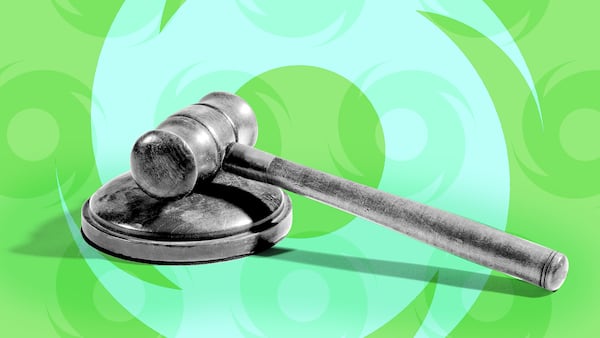- The criminal trial of Tornado Cash co-founder Roman Storm entered its third and final week on Monday.
- Storm called a cryptography expert to rebut testimony from government witnesses.
- But a judge denied his request to show jurors supposedly exculpatory messages.
Tornado Cash co-founder Roman Storm began his defence in earnest Monday, though a federal judge ruled he could not present “self-serving” evidence at his criminal trial that includes private messages in which the software developer lamented cybercriminals’ use of the protocol.
That evidence would show Storm did not intend for Tornado Cash to serve as a money laundering tool for cybercriminals, defence attorneys wrote in a letter to Judge Katherine Polk Failla on Sunday.
Failla disagreed. Most of the messages did not offer any insight into Storm’s state of mind when he created and contributed to the Tornado Cash protocol, she said Monday.
Prosecutors have charged Storm with conspiracy to commit money laundering, operate an unlicensed money-transmitting business, and violate US sanctions. He faces more than 40 years in prison.
‘Spitballing’
In order to prove the money laundering charge, prosecutors must show that Storm built and ran Tornado Cash for cybercriminals.
On Thursday, a prosecutor called money launderers Storm’s “primary target market.” One government exhibit shows Storm wearing a t-shirt featuring a washing machine and the Tornado Cash logo.
But Storm has said that he built Tornado Cash for people seeking privacy on the blockchain and that he was powerless to prevent cybercriminals from using the protocol to launder stolen crypto.
In June 2022, crypto forensics firm Elliptic traced to North Korean hackers almost $100 million in assets that were stolen from the Harmony blockchain and laundered through Tornado Cash.
“I’m glad those fuckers are detected,” Storm said in a group chat featuring the Tornado Cash co-founders and executives at Dragonfly Capital.
Failla said Storm could show the message to jurors. But she denied his request to share other messages.
In a July 2020 exchange with Dragonfly executive Haseeb Qureshi, Storm said that guidance from the Financial Crimes Enforcement Network led him to believe Tornado Cash was a legal business.
“I agree, which is why we want to invest. We are convinced what you guys are doing is legal,” Qureshi replied.
Failla said the exchange was not indicative of Storm’s state of mind when he committed his alleged crimes.
In an October 2020 group chat with co-founders Roman Semenov and Alexey Pertsev, Storm fumed that “we are getting shit on as if we are criminals of some sort.”
Semenov suggested they attract more “regular users.”
“Now all sorts of terrorists also use cash but no one calls the dollar a scam because of that,” Semenov wrote.
“I understand all that, Roma… I am just concerned,” Storm replied. “It’s unfortunate that people don’t understand what we want to do.”
Failla called the exchange a mere “gripe session” on Monday.
Compliance
As the trial entered its third and final week, Storm’s defence began in earnest by calling as a witness cryptography expert Matt Edman.
Edman testified there was little that Storm could have done to limit money laundering on Tornado Cash, rebutting claims from a government witness who said that Storm had declined to make simple changes that could have deterred cybercriminals.
While Storm and his co-founders repeatedly added anti-money laundering features to Tornado Cash — features that were uncommon among other crypto projects — they were easily circumvented, according to Edman.
But it wasn’t for lack of effort, Edman suggested. Rather, those tools were ineffective because earlier versions of the Tornado Cash website and other components of the protocol are stored on the InterPlanetary File System, or IPFS — a decentralised data storage system.
“So through this system you really can’t make old content go away?” defence attorney Keri Axel asked Edman.
“No,” he replied.
In at least one case, a hacker appeared to circumvent an anti-money laundering tool by using an older version of Tornado Cash’s so-called router, Edman said.
One such tool blocked sanctioned crypto wallets from accessing the protocol through the Tornado Cash website.
The Tornado Cash founders installed that tool in April 2022 — just one month after it was released by crypto forensics firm Chainalysis.
It worked as intended — no sanctioned wallets interacted directly with Tornado Cash after the tool was installed, according to Edman.
But getting around the tool was as easy as creating new intermediary wallets, Edman said. Because the US Treasury Department could not sanction these intermediary wallets in real time, the tool could not prevent sanctioned entities, such as North Korea, from using Tornado Cash.
Edman also testified that 85% of the crypto deposited in Tornado Cash between September 2020 and August 2022 could not be traced to crime.
On Tuesday, defence attorneys expect to call as many as six witnesses, including Columbia University adjunct professor Omid Malekan and Johns Hopkins University associate professor Matthew Green.
Storm has yet to decide whether he will testify in his own trial, defence attorney Brian Klein said on Monday.
If Storm does not testify, both sides expect to present their closing arguments on Wednesday.
Aleks Gilbert is DL News’ New York-based DeFi Correspondent. Reach out to him with tips at aleks@dlnews.com.







